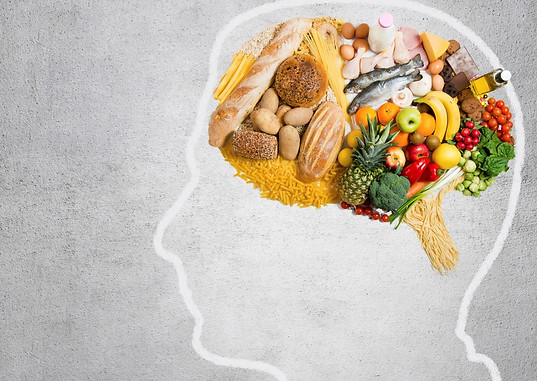
Food insecurity and the brain, body, and culture
This page will highlight several ways that the brain and body work together to help grow, protect, and heal.
The brain will release hormones and neurotransmitters when it receives the necessary nutrients. Healthy, organic foods are high in these nutrients, yet tend to be more expensive and are not frequently donated to food pantries.
Finally, we will take a look at the cultural and social impacts of food insecurity.
Neurobiological impacts of food insecurity
The old saying "You are what you eat" has some scientific value to it. Foods high in protein increase dopamine, helping with a mental boost and alertness. Carbohydrates help to release serotonin into the system, creating relaxation and anti-stress reactions in the body. Choline and acetylcholine are linked to concentration and memory, which can be improved by including eggs and liver in your diet.
(Cozolino, 2020; Food, mood, and neurotransmitters, n.d.; Gentry, 2020; Le, 2014)

Micronutrition
Many fast food items lack micronutrients. Foods low in micronutrients can impact an individual's physical health and development. Micronutrients include iron, vitamin A, vitamin D, iodine, folate, and zinc. It's important that all people receive nutritious foods, but especially vital for pregnant women and children to increase these nutrients in their diets.
(Center for Disease Control and Prevention, 2022)

Intergenerational food insecurity
Food insecurity impacts BIPOC, women, non-traditional, and first-generation students at higher rates than white, traditional-aged students with family support. Some services that are intended to aid families in poverty are systematically flawed, leading generations of working poor to remain in poverty.
(Bruening et al., 2017; DeBate et al., 2021; Landry et al., 2022; Pathak et al., 2022; Peterson & Freidus, 2020; Sethi, 2020)

